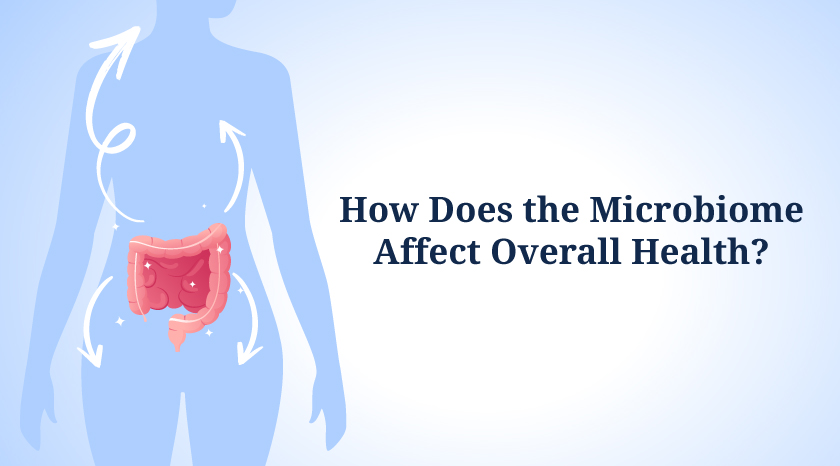Our bodies are home to trillions of microorganisms, collectively known as the microbiome, that play a crucial role in our overall health. These microorganisms, including bacteria, fungi, viruses, and other microbes, inhabit various parts of our bodies, primarily the gut. The intricate relationship between the microbiome and our health has been a focal point of research, revealing its significant impact on various bodily functions and overall well-being.
The Gut Microbiome: A Central Player
The gut microbiome is perhaps the most well-known and studied component of the human microbiome. It influences digestion, immune function, and even mental health. Here’s how:
Digestion and Nutrient Absorption
The gut microbiome aids in the breakdown of complex carbohydrates, proteins, and fats, facilitating nutrient absorption. Beneficial bacteria produce enzymes that our bodies cannot, allowing us to extract energy and nutrients from food that would otherwise be indigestible. Additionally, some gut bacteria synthesize essential vitamins like B12 and K, contributing directly to our nutritional intake.
Immune System Regulation
A healthy gut microbiome is crucial for a well-functioning immune system. It helps train the immune system to distinguish between harmful pathogens and beneficial microbes, reducing the risk of autoimmune diseases and allergies. The microbiome also produces short-chain fatty acids (SCFAs), which have anti-inflammatory properties, further supporting immune health.
Mental Health and Mood
The gut-brain axis is a bidirectional communication system between the gut and the brain, significantly influenced by the microbiome. Research has shown that gut bacteria produce neurotransmitters like serotonin and dopamine, which play a role in regulating mood, anxiety, and stress levels. An imbalance in the gut microbiome, known as dysbiosis, has been linked to mental health disorders such as depression and anxiety.
Beyond the Gut: The Microbiome’s Systemic Impact
While the gut microbiome is a central player, the microbiome extends to other parts of the body, each contributing to overall health in unique ways.
Skin Health
The skin microbiome acts as a barrier against harmful pathogens, preventing infections and supporting the skin’s natural healing processes. A balanced skin microbiome can reduce the risk of skin conditions like acne, eczema, and psoriasis. Probiotics and prebiotics in skincare products are increasingly popular for maintaining a healthy skin microbiome.
Oral Health
The oral microbiome is essential for maintaining dental and gum health. Beneficial bacteria in the mouth help prevent tooth decay, gum disease, and bad breath by competing with harmful bacteria. Oral hygiene practices that support a balanced microbiome can contribute to better overall health.
Respiratory Health
The respiratory tract has its own microbiome, which plays a role in protecting against respiratory infections. A healthy respiratory microbiome can reduce the severity and frequency of conditions like asthma, allergies, and chronic obstructive pulmonary disease (COPD).
Maintaining a Healthy Microbiome
Given the microbiome’s profound impact on health, maintaining its balance is crucial. Here are some tips to support a healthy microbiome:
Diet
A diverse diet rich in fiber, fruits, vegetables, and fermented foods promotes a healthy gut microbiome. Prebiotics (found in foods like garlic, onions, and bananas) and probiotics (found in yogurt, kefir, and sauerkraut) can enhance microbial diversity and balance.
Avoiding Overuse of Antibiotics
While antibiotics are essential for treating bacterial infections, their overuse can disrupt the microbiome by killing beneficial bacteria. It’s important to use antibiotics only when necessary and as prescribed by a healthcare provider.
Stress Management
Chronic stress can negatively affect the microbiome. Practices such as meditation, exercise, and adequate sleep can help manage stress and support a healthy microbiome.
Limiting Processed Foods
Processed foods often contain additives and preservatives that can harm beneficial bacteria. Reducing the intake of processed foods in favor of whole, natural foods can promote a healthier microbiome.
The microbiome is a vital component of our overall health, influencing everything from digestion and immune function to mental health and skin condition. By understanding its importance and taking steps to support a balanced microbiome, we can enhance our well-being and reduce the risk of various health issues. Embracing a lifestyle that promotes microbiome health is a powerful way to invest in our long-term health and vitality.




